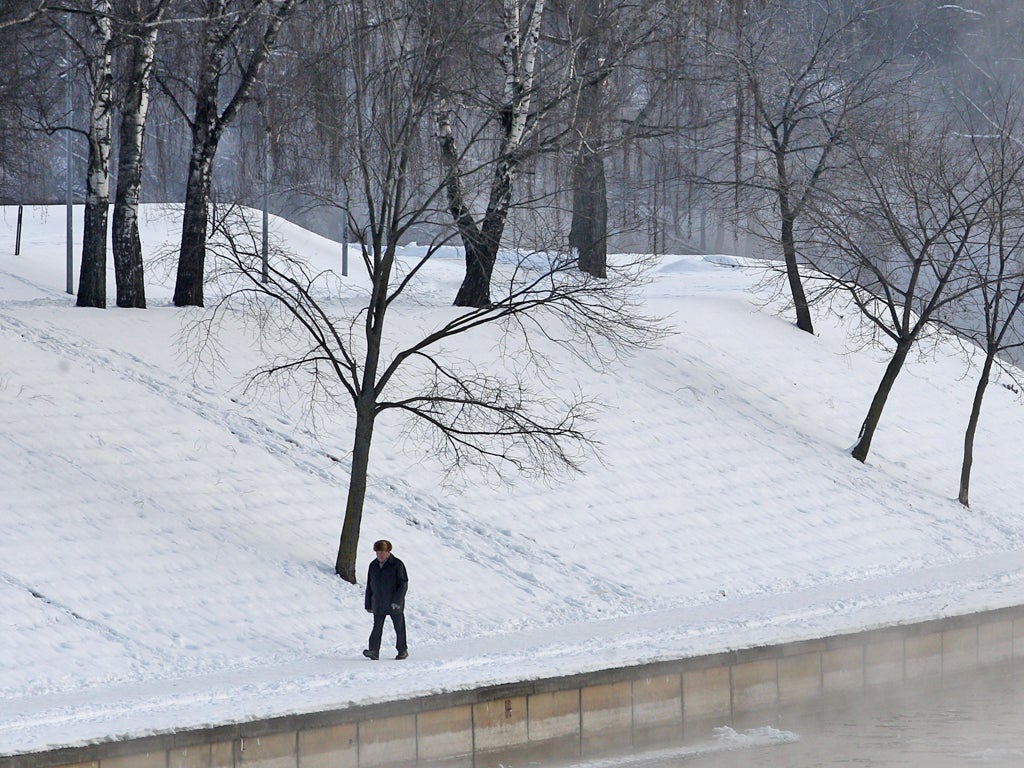
Your support helps us to tell the story
From reproductive rights to climate change to Big Tech, The Independent is on the ground when the story is developing. Whether it's investigating the financials of Elon Musk's pro-Trump PAC or producing our latest documentary, 'The A Word', which shines a light on the American women fighting for reproductive rights, we know how important it is to parse out the facts from the messaging.
At such a critical moment in US history, we need reporters on the ground. Your donation allows us to keep sending journalists to speak to both sides of the story.
The Independent is trusted by Americans across the entire political spectrum. And unlike many other quality news outlets, we choose not to lock Americans out of our reporting and analysis with paywalls. We believe quality journalism should be available to everyone, paid for by those who can afford it.
Your support makes all the difference.Helicopters have lifted dozens of people from snow-blocked villages in Serbia and Bosnia and brought in emergency food and medicine as a severe cold spell kept eastern Europe in its icy grip.
The death toll from the cold rose to 79 and emergency services worked overtime as temperatures sank to minus 32.5C in some areas.
Even parts of the Black Sea froze near the Romanian coastline and the rare show fell on Croatian islands in the Adriatic.
In central Serbia, helicopters pulled out 12 people, including nine who went to a funeral but then could not get back over icy, snow-choked roads. Two more people froze to death in the snow and two others are missing, bringing that nation's death toll to five.
"The situation is dramatic, the snow is up to five meters (16 1/2 feet) high in some areas, you can only see rooftops," said a doctor who helped the helicopter evacuations.
One of those rescued was an elderly woman who had fallen into a coma. She survived after being airlifted to a hospital.
Two helicopters were also used to rescue people and supply remote villages in northern Bosnia.
"We are trying to get through to several small villages, with each just a few elderly residents," said a Bosnian rescue official.
"All together some 200-300 people are cut off. We are supplying them for the second day with food and medication."
Some villages have had no electricity for two days and engineers were working around-the-clock trying to fix power lines.
Ukraine alone reported 43 deaths, mostly of homeless people. The country's Emergency Situations Ministry said 28 people had been found dead on the streets, eight died in hospitals and seven in their homes. Over 720 others were hospitalised with hypothermia and frostbite.
Authorities have deployed over 1,730 heating shelters across the country, handing out hot tea, coffee, boiled potatoes and pork fat - a traditional Ukrainian dish - to the homeless. Hospitals were told not to discharge homeless patients even if their treatment was finished to protect them from the cold.
Prime Minister Mykola Azarov urged Ukrainians to stay vigilant, dress warmly and help each other in the face of the severe weather.
"I call on citizens, enterprises, organizations not to be indifferent, to support and protect those people who cannot help themselves in this difficult time," he said. "We are one people."
His comments after some experts suggested Ukraine's high death toll was linked to authorities' unwillingness and incompetence in dealing with the homeless.
In Romania, temperatures plunged to minus 32.5C, and six homeless people died in the past 24 hours of hypothermia Hundreds of others were sent to shelters to protect them from the extreme cold.
Five people died of hypothermia in Poland, bringing its toll up to 20 since Friday.
In Russia, temperatures fell to minus 21C in Moscow but only one person was reported to have died of the cold.
AP
Join our commenting forum
Join thought-provoking conversations, follow other Independent readers and see their replies
Comments